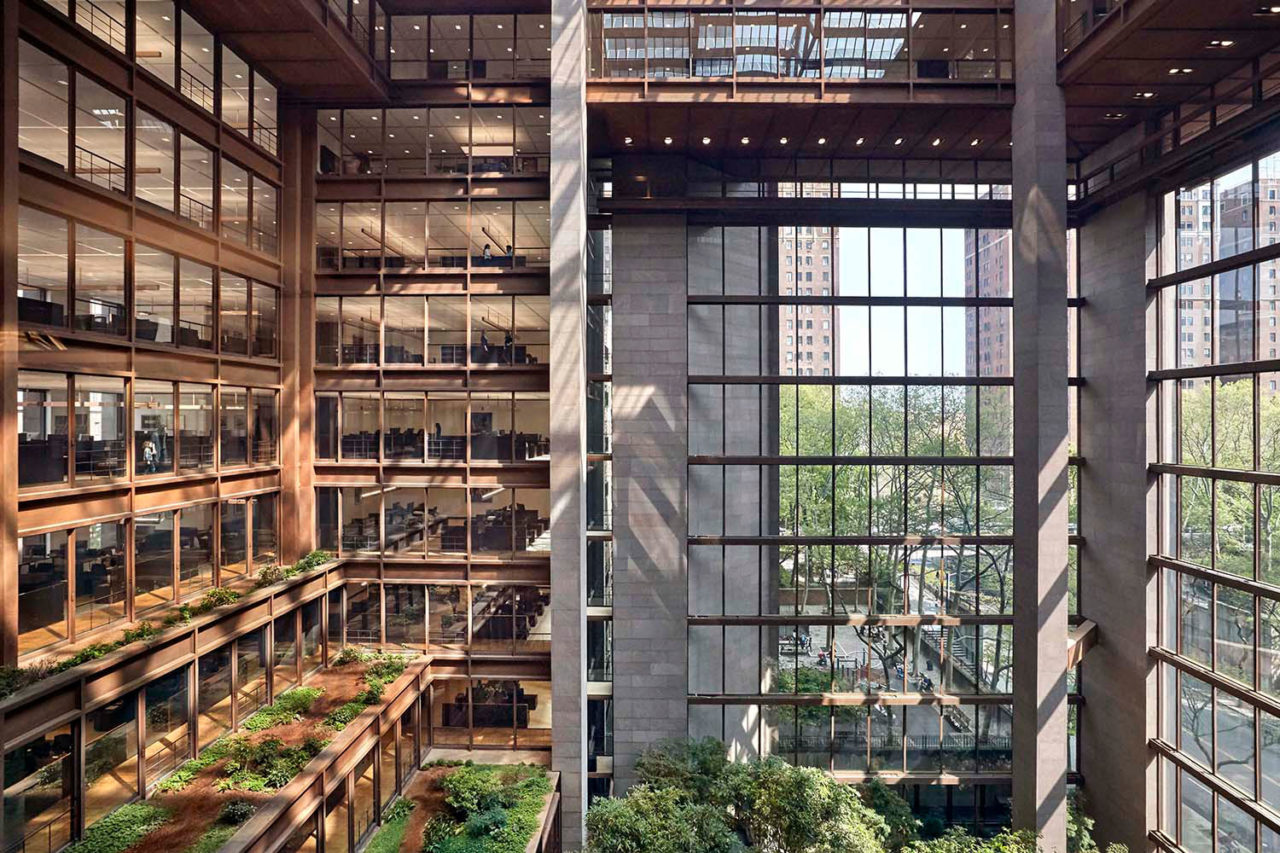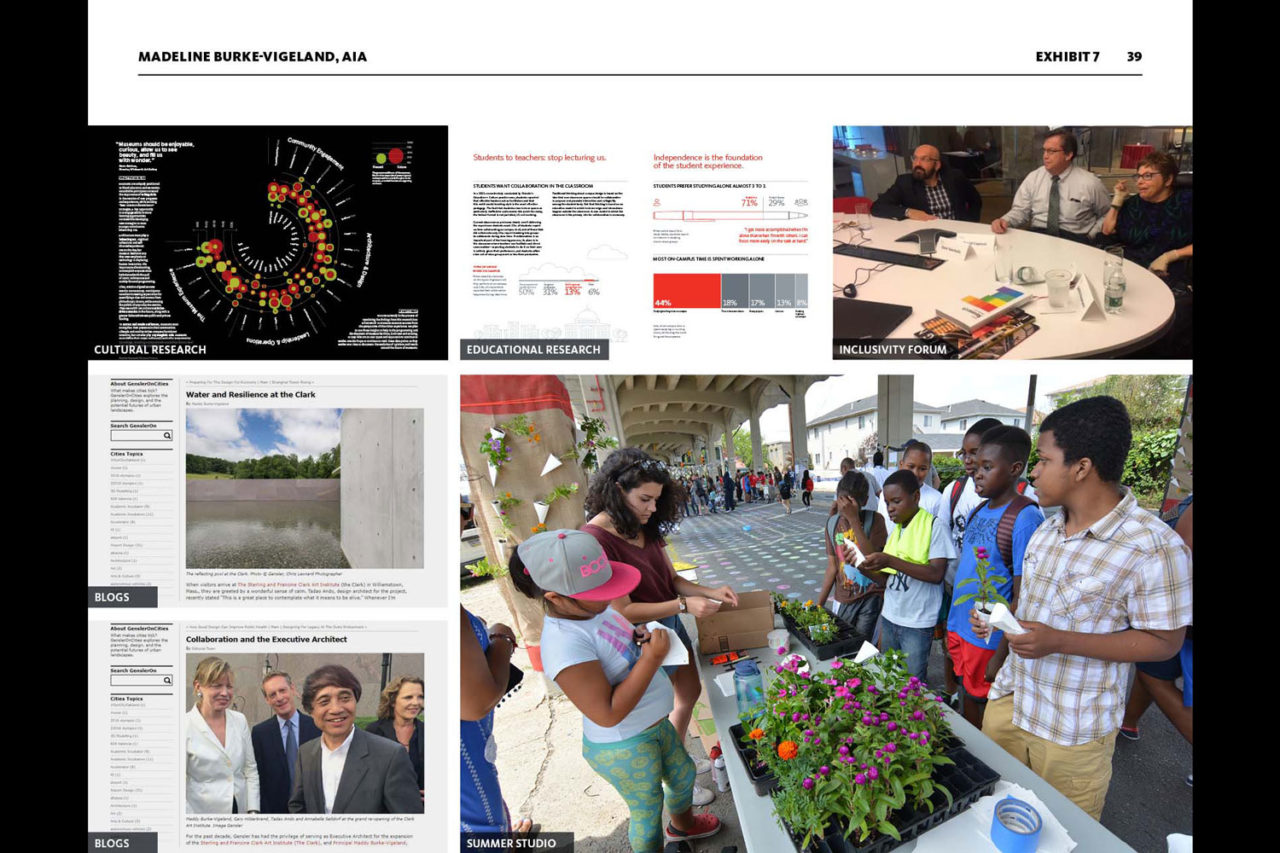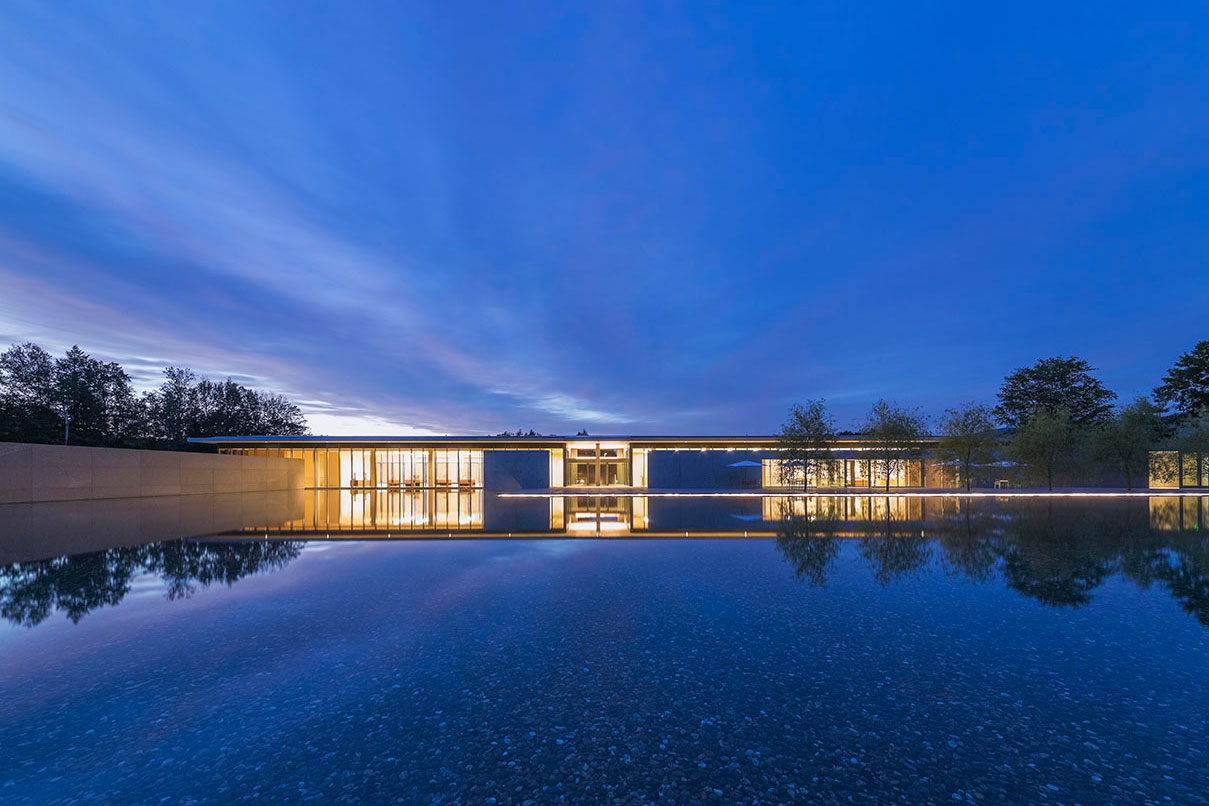by: AIA New York
Madeline Burke-Vigeland, FAIA, LEED AP, NCARB, Principal, Gensler, has a broad portfolio of projects and a reputation as a leader of successful collaborations with high-profile clients and peer design firms. Her development of innovative collaborative processes to enhance outcomes has resulted in an advancement of architectural standards and the execution of internationally recognized educational and cultural projects. In addition to her role as Project Director for the recently completed renovation of the iconic Ford Foundation Center for Social Justice, which won a 2020 AIANY Interiors Honor Award, she was Principal-in-Charge for the expansion project for the Museum of Modern Art and served in a similar capacity for the Vagelos Graduate and Medical Education Center at Columbia University, and most recently for the International Center of Photography at Essex Crossing. Burke-Vigeland has worked closely with the New York Public Library, the Jackie Robinson Foundation, and the New Museum. She serves as Chair of the Dean’s Council of the University of Buffalo’s School of Architecture and Planning and has lectured at the Pratt Institute, Columbia University, New York University, and Harvard University.
The Jury of Fellows of the AIA elevated Burke-Vigeland to the College of Fellows in the second category of Fellowship, which recognizes architects who have made efforts “To advance the science and art of planning and building by advancing the standards of architectural education, training, and practice,” according to the organization’s definition. Burke-Vigeland will eventually be celebrated at AIA New York’s annual New Fellows Reception, once a new date is confirmed at the Center for Architecture in the wake of COVID-19.
Q: What are some of your favorite recent projects that you’ve worked on?
A: I have been super privileged to have worked with great clients throughout my career—most recently with the Ford Foundation on a mission-driven renovation of the Roche Dinkeloo modernist landmark. Partnering with the Foundation on the transformation of their corporate headquarters into a Center for Social Justice, a vibrant hub in support of equity and inclusion, demanded a large team of experts. With Ford’s mission as our guide, the team coalesced seamlessly to create and execute a forward-thinking, yet observant, solution and as well, an incredibly rewarding project process for all.
Q: How have recent advancements in technology impacted your work?
A: Advances in technology have progressed every aspect of our profession, from the augmented and virtual visualization of design to robotic implementation. However, technology alone won’t be able to advance solutions to grand scale world problems—issues such as affordable housing require smart and efficient prefabrication and implementation and a willing social class to promote and support it.
Q: What do you see as an architect’s role—and responsibility—within our culture?
A: Simply put, I see the architect’s role as makers and educators of social good. If social good is driving our mission, we can make the world a better place.
Q: What are your thoughts on architectural education today?
A: It’s really exciting to see what is happening in architecture schools today—the focus on cross-disciplinary dialogue, including many opportunities for dual degrees, places architecture and architects at the center of world issues. It’s also great to see more diverse student populations and with this, a broader cross-section of thought leaders.
Q: What do you think are the biggest challenges, or opportunities, facing cities?
A: For the first time in our history, more people are living in urban centers than not. Yet, the more cities grow, the more we feel the consequences. At Gensler, we are focused on where we can make a difference: climate change, housing and homelessness, mobility and connected cities. As architects, we have the unique opportunity to make transformational change. Design solutions need to be focused on resiliency and eliminating greenhouse gases; creating temporary supportive housing, as well as long-term permanent solutions; rethinking roadways, and streetscapes in a way that gives space back to people; and harnessing technology to create intelligent and highly adaptive spaces that better the human experience.
Editors’ Note: This feature is part of a series celebrating the members of the American Institute of Architects (AIA) New York Chapter who are elevated each year to the AIA College of Fellows, an honor awarded to members who have made significant contributions to both the profession and society. Learn more about Fellowship here.













